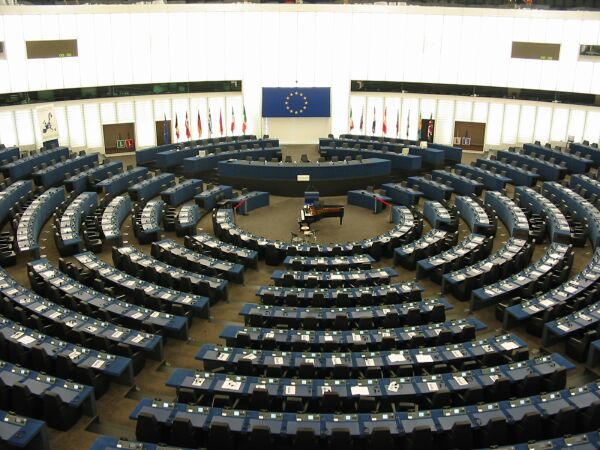According to Agence Europe (Brussels, 20/5/14) the US/EU Free Trade Agreement, aka TTIP, is a strong theme in the European elections due to take place on 22-25 May. Different parties have stated their positions (in general neoliberal parties for, left and green against and far right against).
“The controversial issues: The future transatlantic free-trade agreement raises a great many concerns, first and foremost: risks to health and the environment. The Commission has repeated interminably that the European regulations on agriculture and agri-food will not be compromised, and that there will be no GMOs, hormone-injected beef or chlorinated chicken in Europe. There are, however, fears that European standards, which are more protective on the whole, will be harmonised downwards. Risk perception is not the same in Europe, where the principle of proportion is invoked, as it is in the United States, where the focus is on confirmed risk.
Other dangers have also been emphasised, such as the exploitation of shale gas or the liberalisation of the trade in harmful chemicals. In the same spirit, the issue of geographical indications, which Europe wants to see protected in the US, is based on cultural and societal differences on either side of the Atlantic.
Much criticism has also been made of the notion of creating a supranational court to rule on disputes between states and investors. Washington is calling for the creation of a protection mechanism for multinationals, which would allow them to sue states if they believe that their interests are being harmed by public policies. However, in civil society and part of the political spectrum alike, there are fears that, by allowing multinationals to take action against states for compensation, for example under public health legislation, states cojuld be discouraged from regulating on social, environmental and health protection issues. The cases brought by the world tobacco number one, Philip Morris, against Australia and Uruguay over health warnings on packets of cigarettes, is a dangerous precedent, they argue. The subject has become so sensitive that the Commission has shelved discussions with the US on this dossier and launched a public consultation, to run until the summer.
Lastly, the lack of transparency in the negotiations has undermined public confidence in them. Although the Commission states that it is acting transparently, unions and NGOs believe that industry is being consulted more than they. Although it is easily accessible over the internet as a result of leaks, the negotiation mandate has still not been published by the EU, due to a handful of member states which would rather not. On this issue, Martin Schulz [President of the EP] argues in favour of greater involvement for the European Parliament, which will eventually have to vote on the treaty. For his part, Jean-Claude Junker finds it entirely to be expected that the “EU is not showing its hand right in the middle of the negotiations”. (EH)”
The main difficulty for voters in the European elections is the lack of presence of this fundamental issue in the main media that would allow for the formation of an informed opinion. The most visible candidates, favoured by the media for their colourful personalities rather than their coherent (or humane) policies, simply fail to even mention it. Those in the UK concerned with the demise of the National Health Service in favour of a privatised system have noticed that the TTIP includes a number of clauses that would accelerate and deepen such process. Others have denounced that the economic benefits would be minimal, too long term to have any impact in the present economy and in any case would concentrate on those who already concentrate most of the wealth.
Given recent a report on the increase in billionaires in Britain, with a corresponding increase in the gap between rich and poor, there is no reason to feel optimistic that the proposed TTIP would do anything to reverse this trend.






